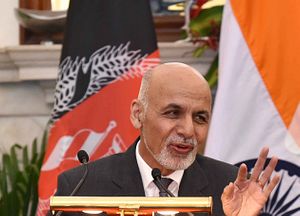It is now confirmed that the erstwhile leader of the Afghan Taliban, Mullah Mohammad Omar, is no longer in this world. Moreover, he has been dead and buried (somewhere in Afghanistan) for over two years, unknown to most of the Taliban. The death of Mullah Omar changes the calculus in Afghanistan as it impacts ongoing negotiations between the Taliban and the government. It has been suggested that groups as disparate as the Afghan government, the Chinese government, and the West may all miss Mullah Omar because he was the glue that held the Taliban together and made negotiating with them meaningful.
In fact, the Taliban is already fragmenting and that is a good thing. It is precisely because top commanders did not want the movement to fragment that they kept Mullah Omar’s death secret; but now that the cat is out of the bag, it is too late to stuff it back in. In addition to Mullah Omar, another key Taliban leader, Jalaluddin Haqqani of the Haqqani Network—allies of the Taliban based in Waziristan, Pakistan—was revealed to have died over a year ago (he is also buried in Afghanistan). With these important leaders gone, the Taliban is rudderless. An ally of the group and notorious warlord Gulbuddin Hekmatyar declared his support for the Islamic State last month.
The new leader of the Taliban is one Akhtar Mohammad Mansour, a seasoned veteran of the movement, but one who does not carry the support of many commanders or Mullah Omar’s family. In a statement released on Sunday, Mullah Omar’s younger brother Abdul Manan said that his family did not give a baiyat, or pledge of allegiance, to Mullah Mansour. Instead, they, and some other commanders are said to favor Mullah Omar’s son, Mullah Yaqub, for the role of Taliban leader—Mullah Yaqub is reported to have walked out of the Taliban leadership summit in Quetta, Pakistan.
The Taliban movement is now likely to disintegrate into many factions, some of whom will be no more than bandits and thugs involved in crime, greatly lowering the legitimacy of the movement. Additionally, those that pledge allegiance to the Islamic State are unlikely to be successful in the long run; the Islamic State will not be able to succeed in Afghanistan due to a variety of ethnic and geopolitical factors unique to the region, as I highlighted a few weeks ago. Now, then, is the opportune time for the Afghan government to actually defeat the Taliban and consolidate its control over the south and east, though this may require playing tribe against tribe, something that Hamid Karzai was better at doing than Ashraf Ghani. The governor of the northern province of Balkh, Atta Muhammad Nur, echoing the thoughts of many northern, mostly Tajik, warlords opposed to talks with the Taliban, said that “defeating the Taliban is a very real possibility right now and this is the right moment to fight against the Taliban.”
The Taliban has a whole were a threat to the government and had shown the previous ability to take over much of the country. Now, however, if they divide into factions, some fighting each other, and without the support of Pakistan, they can be militarily defeated. This makes negotiations, which will undoubtedly have required the Afghan government to give up some of its recent gains, largely unnecessary at the moment. Some factions of the Taliban can be brought into the government in the future once the government improves its position of strength.
Negotiations made sense before as they would have helped bring the Taliban into the political process and led to lasting peace in Afghanistan. But the circumstances have changed. The opportunity presents itself for the division of the Taliban and the defeat of its many factions without necessarily being beholden to aspects of the Taliban ideology. The Afghan government should waste no time in speeding up this process and taking advantage of this situation.

































